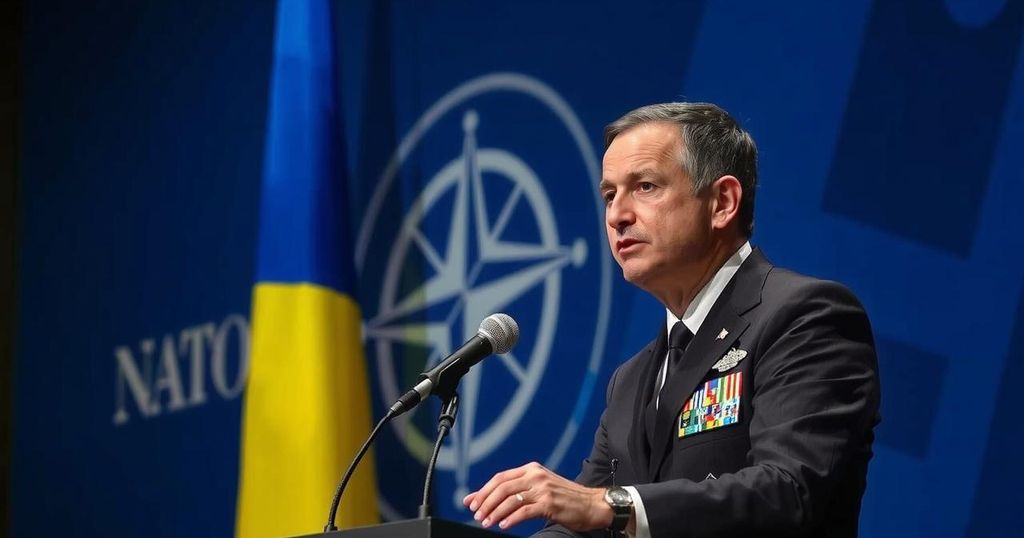World news
ASIA, BORIS JOHNSON, BUDAPEST, CHINA, EUROPE, EUROPE/ASIA, FINANCIAL TIMES, FOREIGN AFFAIRS, HUNGARY, INTERNATIONAL RELATIONS, IRAN, JOE BIDEN, MEXICO, MILITARY SUPPORT, NATO, NORTH AMERICA, NORTH KOREA, PEACE NEGOTIATIONS, RUSSIA, RUSSIA-UKRAINE WAR, STARMER, TELEGRAPH, THE FINANCIAL TIMES, THE TELEGRAPH, UK, UKRAINE, UNITED STATES, US, WAR, ZE
Ethan Kumar
0 Comments
NATO Chief Warns Trump: Risks of Weak Ukraine Peace Deal for Global Security
NATO Secretary-General Mark Rutte cautioned President-elect Donald Trump against forcing a weak peace deal for Ukraine with Russia, warning it could embolden adversaries like China, Iran, and North Korea. Rutte emphasized that this could lead to increased security threats to both Europe and the U.S. Discussions around Ukraine’s NATO membership intensify amid ongoing military aid and negotiations regarding the war.
Mark Rutte, the Secretary-General of NATO, cautioned President-elect Donald Trump against the potential repercussions of coercing Ukraine into a fragile peace agreement with Russia. In an interview with The Financial Times, Rutte stressed that such a deal, lacking in robust support for Ukraine, would not only destabilize Europe but also pose a severe threat to global security. He expressed concern that it could encourage authoritarian regimes, notably Russia, China, North Korea, and Iran, to further their agendas in a collaborative manner.
Rutte emphasized, “We cannot have a situation where we have Kim Jong-un and the Russian leader and Xi Jinping and Iran high-fiving because we came to a deal which is not good for Ukraine.” His comments followed a meeting on November 23, during which Trump and his advisors deliberated these significant issues. The current context surrounding the Russo-Ukrainian war is further complicated by varying opinions among leaders, with UK Prime Minister Keir Starmer acknowledging that the conflict may likely conclude through negotiation.
As the discourse evolves, it remains evident that Ukraine’s aspirations for NATO membership post-Budapest Memorandum remain resolute, contending that any settlement should include security guarantees. Currently, discussions of military aid persist amid a backdrop of intensified hostilities and international negotiations regarding the future trajectory of Ukraine’s defense and alliances.
The importance of a cohesive and robust response to the conflict is paramount, as the ramifications of a weak peace agreement extend beyond Europe, with the potential to embolden adversarial nations. Therefore, Rutte’s plea to ensure a comprehensive support strategy for Ukraine underscores the ongoing significance of NATO’s unity and vigilance in the face of global threats.
The dialogue surrounding Ukraine’s defense and international alliances is becoming increasingly vital in light of ongoing conflicts with Russia. The necessity for NATO’s support in ensuring Ukrainian sovereignty has led to discussions about military aid and future alliances, particularly regarding NATO membership. The past agreements, such as the Budapest Memorandum, are being scrutinized as Ukraine seeks assurances against Russian aggression. Key leaders, including NATO’s Secretary-General and UK Prime Minister, are emphasizing the implications of any peace negotiations on both European and global security frameworks, particularly in relation to authoritarian nations looking to expand their influence.
The warnings from NATO’s Secretary-General underline the geopolitical complexities of the Russo-Ukrainian war and the critical nature of ensuring Ukraine is not pressured into a suboptimal peace agreement. The implications of such an agreement would resonate far beyond Europe, potentially enabling aggressive posturing from countries like China, Iran, and North Korea. As discussions continue concerning Ukraine’s future, it is imperative that NATO maintains a robust, unified stance to safeguard both regional and global stability.
Original Source: euromaidanpress.com




Post Comment